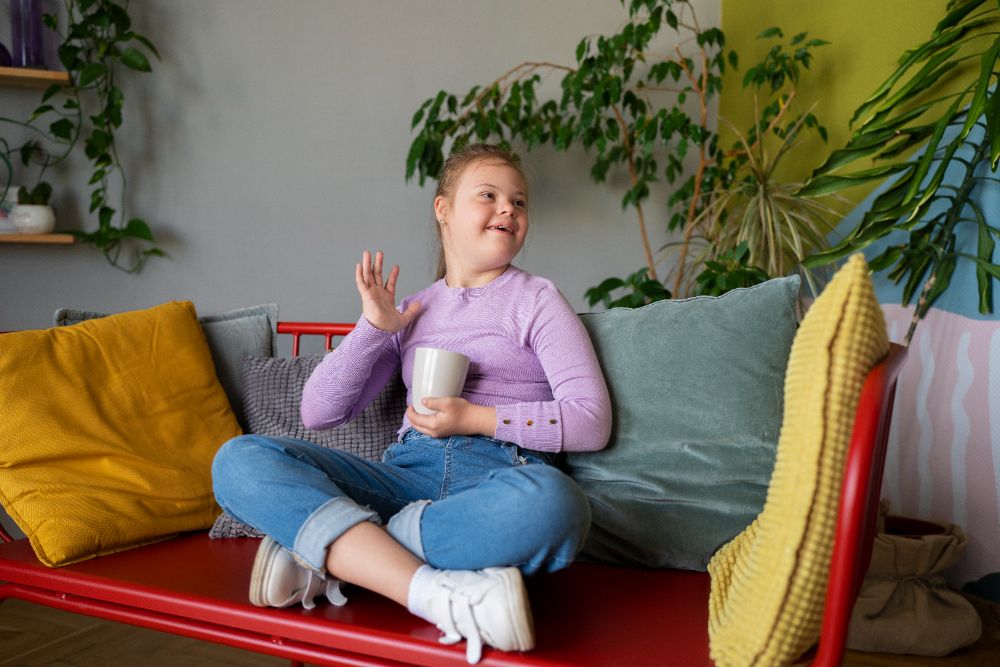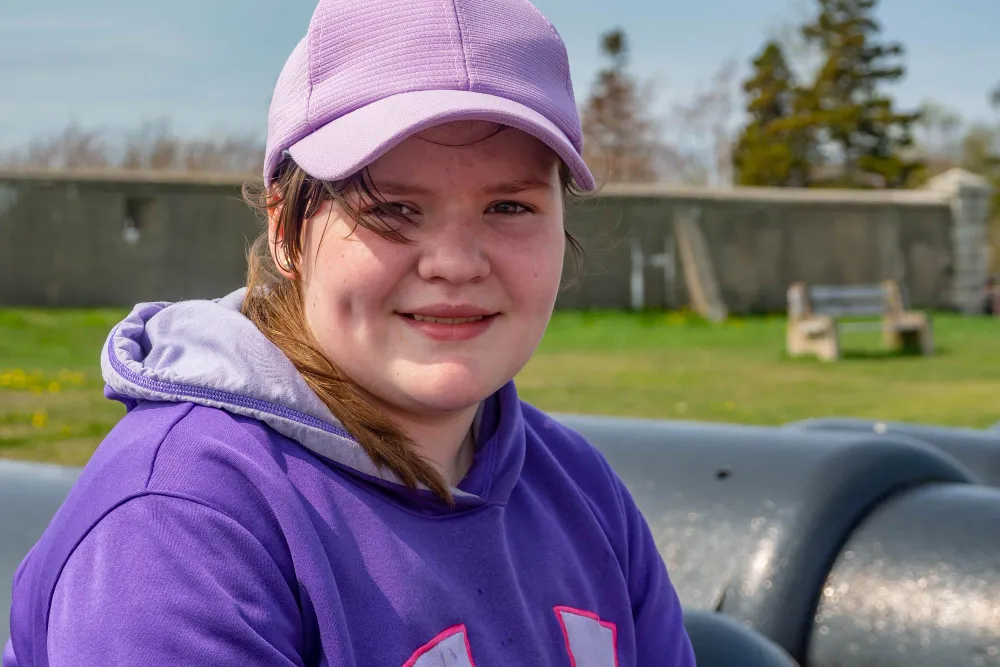Discover how NDIS funding for Down Syndrome can provide essential support and services for individuals with this condition.

Down syndrome is an intellectual disability stemming from a genetic variation. It's crucial to remember that its impact varies greatly from person to person. Understanding the basics of this condition and its prevalence in Australia can help in advocating for appropriate support and resources. Early intervention plays a critical role in maximizing the potential of individuals with Down syndrome.
Down syndrome, also known as Trisomy 21, is a genetic condition that occurs when an individual has an extra copy of chromosome 21 in all or some of their cells. This extra genetic material alters the typical course of development, leading to the characteristics associated with Down syndrome.
These characteristics can include varying degrees of intellectual disability, distinctive physical features, and a higher susceptibility to certain medical conditions. However, it's essential to understand that Down syndrome is not a one-size-fits-all diagnosis. The range and severity of its effects can differ significantly from one individual to another.
Down syndrome is one of the most common chromosomal conditions in Australia. Down Syndrome Australia provides valuable data on the condition's prevalence:
| Feature | Statistic |
|---|---|
| Prevalence | Affects approximately 1 in 1,100 new babies |
| Annual Births | Around 290 babies born with Down syndrome each year |
| Total Population | Up to 15,000 Australians living with Down syndrome |
The support needs of individuals with Down syndrome are diverse. While some individuals require minimal assistance, others may benefit from weekly, daily, or even full-time support to thrive and live fulfilling lives.

Navigating the world of disability support can seem daunting, but understanding how the NDIS works can make a world of difference. The NDIS provides individualized funding and support to eligible individuals with Down syndrome, focusing on their unique needs and goals.
To access NDIS support for Down syndrome, individuals must meet specific criteria:
It's important to note that eligibility is determined on a case-by-case basis. Meeting these criteria doesn't automatically guarantee NDIS funding but makes one eligible to apply.
Applying for NDIS funding with a Down syndrome diagnosis involves a structured process. The first step is to submit an access request form along with supporting evidence of your eligibility. This evidence should come from treating health professionals like a GP, pediatrician, or specialist, and clearly demonstrate how Down syndrome impacts your daily life. The evidence should be recent, comprehensive, and confirm your diagnosis while detailing its functional impact.
You can seek assistance with your access request from your local NDIA office, an Early Childhood Early Intervention partner, or a Support Coordinator. These resources can guide you through the process and ensure your application is comprehensive.
The NDIS offers a wide range of support services tailored to meet the individual needs of people with Down syndrome. These services aim to enhance various aspects of life, promoting independence, inclusion, and overall well-being.
Personal care and daily living assistance are crucial for many individuals with Down syndrome, fostering their independence and enhancing their quality of life. The NDIS can provide funding for support workers to assist with tasks such as:
These supports empower individuals to live more independently and participate more fully in their daily lives.
Early intervention is paramount for children with Down syndrome, and the NDIS recognises its importance. The scheme can fund a range of therapeutic supports, including:
These interventions aim to maximize the potential of individuals with Down syndrome and help them reach their developmental milestones.

Beyond essential support, the NDIS plays a crucial role in enriching the lives of people with Down syndrome by promoting social inclusion, facilitating community participation, and improving living arrangements.
The NDIS understands that community participation is key to a fulfilling life. Funding for activities and programs that promote social inclusion and community engagement are available to NDIS participants with Down syndrome. These may include:
These supports help individuals with Down syndrome build meaningful connections, develop their skills, and live more enriched lives.
The NDIS recognizes that accessible and adaptable living spaces are crucial for individuals with Down syndrome. As such, they offer funding for:
The goal is to create a safe and supportive living environment that empowers individuals with Down syndrome to live as independently as possible.
In conclusion, understanding Down Syndrome and the available NDIS support options is crucial for enhancing the quality of life for individuals with this condition in Australia. NDIS offers a range of comprehensive support services, including personal care, therapeutic supports, and community participation, tailored to meet the specific needs of those with Down Syndrome. By navigating the eligibility criteria and application process, individuals can access the necessary support to live more independently and achieve their educational goals. Families and caregivers play a vital role in creating successful NDIS plans and accessing therapies covered by NDIS. For more information on how NDIS can benefit individuals with Down Syndrome, explore our Frequently Asked Questions section.
Can individuals with Down Syndrome live independently with NDIS support?
Yes, with the right NDIS plan support, many individuals with Down syndrome can achieve independent living. NDIS funding can cover support workers for personal care, plan management, and other essential aspects of daily life.
How does NDIS support educational goals for someone with Down Syndrome?
The NDIS can fund support services that help individuals with Down syndrome reach their educational goals. This may include specialist tutors, assistive technology, or support workers to assist with learning and skill development.
What are the key factors in creating a successful NDIS plan for Down Syndrome?
A successful NDIS plan for Down syndrome considers the unique needs of individuals, includes input from treating health professionals, and has strong support coordination. Early intervention services are also crucial.
Are there specific therapies covered by NDIS for Down Syndrome?
Yes, the NDIS funds various therapies, including occupational therapy, speech therapy, and other therapeutic supports, to address the developmental needs of individuals with Down syndrome, especially during early intervention.
How can families and caregivers navigate NDIS funding for Down Syndrome?
Families can access information and assistance from the NDIS website, their Local Area Coordinator, Support Coordinators, or Down syndrome associations. These resources provide guidance on NDIS funding and support for Down syndrome.